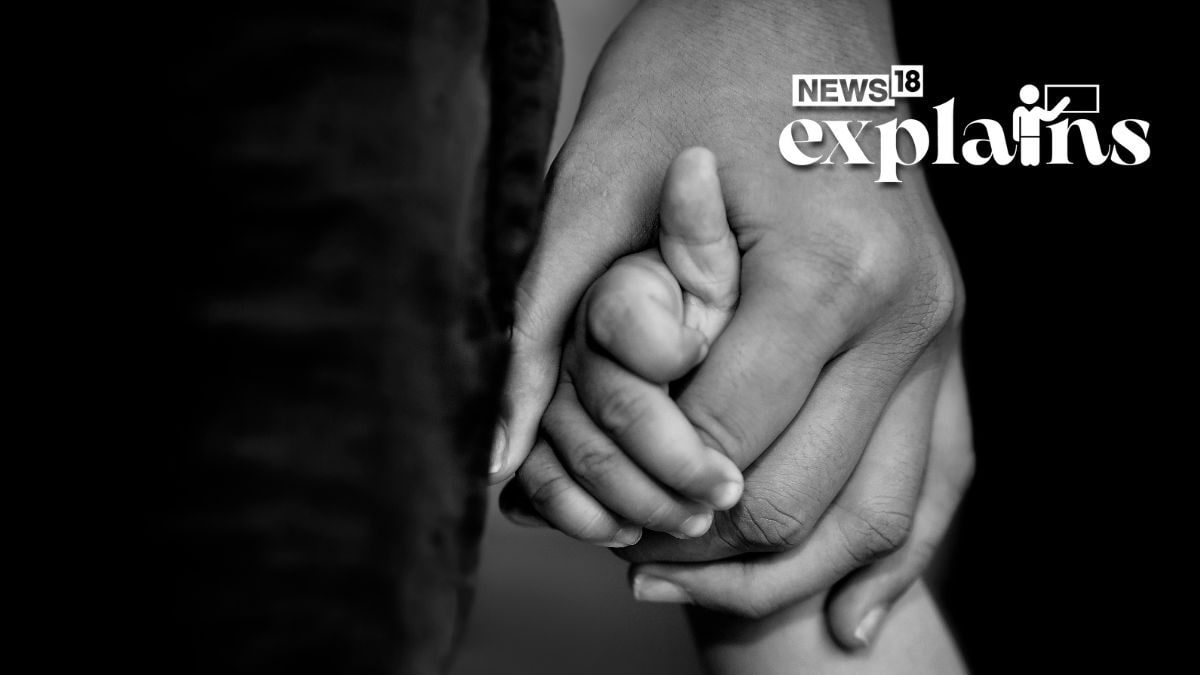Father’s Day is a Complicated Occasion for Some. Here’s How to Deal With It | Explained – News18
It’s Father’s day today. The tradition started when in 1909, a woman in Spokane, Washington heard a sermon on Mother’s Day that inspired her to create a similar holiday for fathers.
The woman’s name was Sonora Smart Dodd, born in 1882, and she is credited as the founder of Father’s Day, according to History.com. Dodd was raised by a Civil War veteran who had been married twice and widowed twice, and had a total of 14 children. Because of her upbringing, she wanted to honor the “loving service” of fathers.
In 1910, Dodd presented a petition to the Spokane Ministerial Alliance, asking them to officially recognize and celebrate the courage and dedication of all fathers. She suggested June 5, her father’s birthday, as the date for the holiday. However, the local clergy liked the idea of a special Father’s Day service but couldn’t organize it in time, so they decided to celebrate it on the third Sunday of June instead.
Over time the occasion has evolved as a way of reminding and honouring fathers for all they did and do for us. People like to buy their fathers cards, gifts and more on the day.
However, the day is also hard to deal with for those who have lost their fathers, or have not had good relationships with them.
Human relationships are at best complicated and certainly not at all the idealistic version of what these celebratory occasions pose. But such days also give those hurting opportunities to face the emotions that one may have buried deep within themselves so far.
How to Cope With Father’s Day if You’ve Lost Your Dad
While there are many things that people with similar experiences recommend doing on the day, what you pick necessarily does not have to be what others do. It just has to feel right.
Carly Midgley, a writer who experienced the loss of her father in 2017 at the age of 22, grief does not have a specific appearance, especially on a day as emotionally charged as Father’s Day.
Midgley told Huffpost.com that the experience of grief can vary greatly from person to person. Some may feel the weight of their loss intensely, while others may feel very little and question if they are somehow handling it incorrectly. She reassures those grieving that their emotions and actions on Father’s Day, or any day, do not reflect their grief, character, or love for their father.
Midgley emphasizes that grief is a daily struggle that does not conform to a set timeline, and it is possible that individuals may simply be in need of a break from their grieving process. Feeling okay on Father’s Day or any other day is completely acceptable, just as feeling overwhelmed and crushed is also valid, according to the Toronto-based writer.
After six years since the loss of her father, Carly Midgley has discovered solace in setting aside a special place or time each year to honor and remember her dad. This act of “holding space” allows her to create a meaningful connection and keep his memory alive.
“Whether that’s talking with family, engaging with something he loved ― hockey, Neil Young, walks in nature ― or just taking a quiet moment to tell him I miss him, it helps to make the day a little more his,” she told Huffpost.com.
And this is one of the things you can do if you miss your father. Remember that he too, was a person with feelings, dreams, hopes and aspirations, which now live in the world through you. You can remember the things he liked, or make an effort to engage in them on the day, or even resolve to engage in their favourite activities more in life.
You can also engage in charities or causes that were dear to your father.
But all this said, it’s okay if you want to be alone. It’s best to give your friends and family a heads-up if you want some space on the day.
How to Deal With the Day if You’ve Had a Toxic Relationship With Your Father
Author Lane Moore, in her book “How To Be Alone,” shared her personal experience of having a difficult relationship with her father, comparing it to being like the character Matilda from the famous novel, Refinery29 reported. For Moore, Father’s Day is a distressing occasion that amplifies the impact of her upbringing, especially when she sees social media filled with posts praising great fathers.
Moore points out that individuals who grew up in loving and supportive households often overlook those who have strained or negative relationships with their fathers on Father’s Day. While people may remember those who have lost their parents or those struggling with fertility issues, those with difficult parents often go unnoticed. Moore believes this lack of acknowledgment can further contribute to feelings of isolation for those in similar situations.
Dr. Barbara Van Dahlen, the founder of the mental health nonprofit Give an Hour, suggests in the Refinery29 report, of seeking support from a trusted friend, therapist, or family member to discuss the emotions and thoughts that Father’s Day may evoke.
Author Lane Moore advises staying away from social media, as the abundance of posts celebrating great fathers can exacerbate negative emotions. Taking a break from online platforms can help avoid comparison and additional emotional strain.
It is crucial to remember that you are not alone in your experience, Moore says. Many others share similar feelings and challenges regarding Father’s Day or difficult relationships with their fathers. Knowing that others understand and empathize with your situation can provide comfort and a sense of solidarity.
For all the latest lifestyle News Click Here

